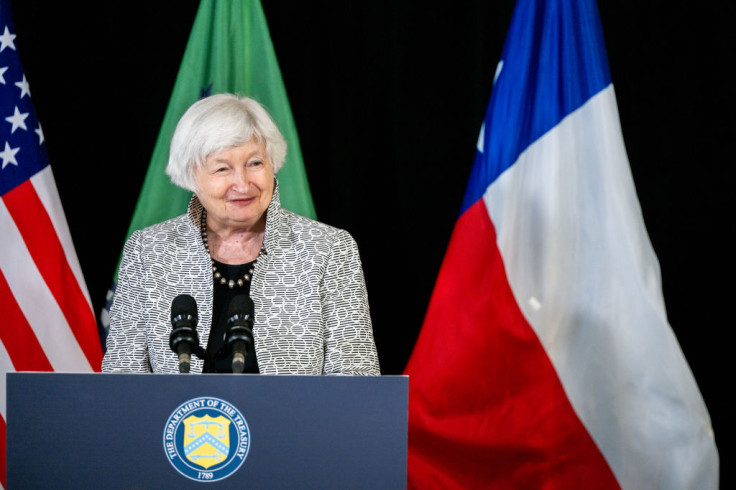US Treasury Taps Machine Learning AI To Recover $4 Billion In Fraud

The U.S. Treasury Department recovered over $4 billion in fraud and prevented improper payments in the fiscal 2024, thanks to the use of advanced machine learning AI.
This year's recovery of more than $4 billion is a threefold increase over the $652.7 million reported in fiscal 2023, driven by efforts from the Treasury's Office of Payment Integrity (OPI) within the Bureau of the Fiscal Service to strengthen its fraud prevention capabilities.
According to a release by the Treasury department, the agency recovered $2.5 billion through identifying and prioritizing high-risk transactions and recovered $1 billion via expediting the identification of Treasury check fraud with machine learning AI.
In addition, it prevented $500 million with expanded risk-based screening, while efficiencies in payment processing schedules resulted in an additional $180 million in prevention.
"Treasury takes seriously our responsibility to serve as effective stewards of taxpayer money. Helping ensure that agencies pay the right person, in the right amount, at the right time is central to our efforts," Deputy Secretary of the Treasury Wally Adeyemo stated.
"We've made significant progress during the past year in preventing over $4 billion in fraudulent and improper payments. We will continue to partner with others in the federal government to equip them with the necessary tools, data, and expertise they need to stop improper payments and fraud," Adeyemo added.
Treasury Department securely disburses approximately 1.4 billion payments valued at over $6.9 trillion dollars to more than 100 million people annually. With a wide range of payments, such as Social Security and Medicaid benefits, federal workers' paychecks, tax refunds, the U.S. Treasury is a prime target for fraudsters.
Based on the UK-based consultants Juniper Research, online payment fraud is expected to total over $362 billion by 2028.
In addition to enhanced capabilities, Treasury is focused on establishing and strengthening partnerships with new and high-risk programs to increase access to and usage of Treasury's payment integrity solutions, including federally funded state administered programs.
In May 2024, Treasury and the Department of Labor announced a data-sharing partnership to provide state unemployment agencies with access to Do Not Pay Working System data sources and services through the Unemployment Insurance Integrity Data Hub.
As the Treasury Department follows the Internal Revenue Service (IRS) in leveraging advanced technology to drive fiscal gains, it has also committed to sharing its resources and insights with other federal agencies, NBC News reported.
Fraud involving checks, whether issued by the government or private entities, remains a growing problem. Between February and August 2023 alone, chartered banks reported around $688 million in suspicious check activity.
US officials have been quietly using AI since 2022 to detect financial fraud. Treasury is relying on machine learning, which is a subset of AI specifically designed to analyze large volumes of data. This technology excels at identifying subtle patterns and detecting potential fraud from the vast datasets, that too in a fraction of the time taken by humans, CNN reported.
Experts say that advanced AI models, once trained, can detect suspicious transactions in just a fraction of a second—mere milliseconds. This is especially vital for the Treasury, which is one of the largest payers in the world.
"Fraudsters are really good at hiding. They're trying to secretly game the system," Renata Miskell, a top Treasury official, told CNN. "AI and leveraging data helps us find those hidden patterns and anomalies and work to prevent them."
Meanwhile, U.S. officials have raised concerns about the risks and challenges of AI in the financial system. Earlier, Treasury Secretary Janet Yellen classified AI as an "emerging vulnerability" to the stability and security of the financial system and warned bankers about the "significant risks."
Though AI systems play a crucial role in identifying potentially fraudulent transactions, experts like Miskell emphasize that human oversight is still essential. AI may flag suspicious activities, but it is always a human who makes the final decision on whether a transaction is indeed fraudulent.
© Copyright IBTimes 2024. All rights reserved.





















